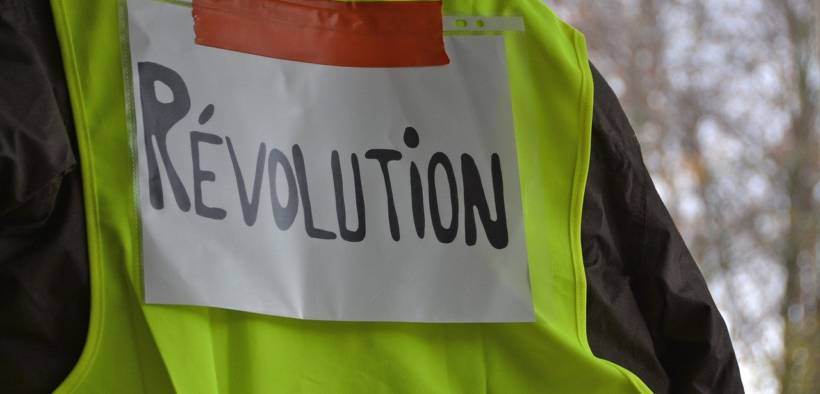Massive French Strikes Continue Despite Macron’s Efforts To Appease Protesters

France’s ongoing demonstrations reflect a global trend of widespread anger over rampant inequality in the world’s economic and political systems.
French President Emmanuel Macron’s efforts to pacify massive protests over his plans to overhaul the country’s pension system failed on Monday, as demonstrations continued after two weeks of strikes have caused widespread disruption in the country.
Macron’s pension plan would replace the current system, which has 42 different pension plans for workers in the private and public sectors, with a universal points-based system. The proposal would also raise the age to receive a pension from 62 to 64, making millions of people work longer or receive lower payments.
More than 800,000 people demonstrated against the plan earlier this month in France’s largest strike in years. On Sunday, President Macron pledged to give up his €6,000 a month presidential pension after leaving office in an attempt to appease demonstrators who have broadly disrupted the country’s transportation services.
“About 48% of ticket holders had their high-speed and intercity services canceled on 23 and 24 December, leaving many to scramble for car-share schemes or last-minute vehicle hire,” reported the Guardian.
Despite making up only around 9.2 percent of the workforce, France’s unions are more powerful than unions in other Western countries. “The real source of French union strength today is the statutory powers they enjoy as joint managers, along with business representatives, of the country’s health and social-security system, and as employee representatives in the workplace,” according to the Economist.
For example, CGT union workers shut down the Lavera oil refinery in southern France, voted to halt production at Total’s Grandpuits refinery, and may vote to shut down other refineries in defiance of Macron’s pension plan.
“We gave an ultimatum to the government, it didn’t listen, so we’re doing exactly what we promised,” Emmanuel Lepine, the secretary-general of the CGT’s oil branch, told France Info. “What we are demanding is the withdrawal of the reform.”
In some ways, France’s situation reflects the United States. Over the past few decades, thousands of jobs have been wiped out in rural and former industrial areas as wealth inequality expanded, and living costs have increased while wages have barely grown for large swathes of the population. Macron’s 2017 electoral rival, Marine Le Pen, has been called the “Trump of France” for her anti-immigrant and anti-globalization proposals to answer societal problems.
France’s more generous pensions serve as a notable difference between the two countries, however, with only 5 percent of French seniors living in poverty, while U.S. seniors suffer a poverty rate nearly four times higher.
Global Protests In 2019
France’s ongoing demonstrations reflect a broader trend of widespread anger with the world’s economic and political systems, as protests erupted from Hong Kong, India, Chile, Ecuador, England, Colombia, Bolivia, Russia, Spain, the Czech Republic, Malta, Algeria, Iraq, Iran, Lebanon and Sudan throughout 2019.
While each country has a unique situation, a recent U.N. report argues that inequality of opportunity is a common theme driving the popular discontent.
Foreign Policy’s Keith Johnson notes that the seemingly small issues that started many of the protests – fare hikes in Chile and a WhatsApp tax in Lebanon – symbolized deep systemic problems shared by the diverse countries: “In all cases, popular ire, once unleashed, found much bigger targets: corruption, political dysfunction, and a general discontent with economic stewardship that seems to offer little promise for a lost generation.”
“What we’re seeing in the protests that emerged in Iraq is people recognizing that these political elites don’t represent anybody but themselves,” Dana El Kurd, an assistant professor at the Doha Institute for Graduate Studies, told NPR. “And what we thought was a sectarian issue is actually an issue of corruption. It’s inequality of access, the same with Lebanon. So in a lot of these places, it was kind of masked as sectarian conflict when it’s really this conflict about inequality.”
The Guardian’s Simon Tisdall notes another common thread in the protests: youth. “There are more young people than ever before. About 41% of the global population of 7.7 billion is aged 24 or under. In Africa, 41% is under 15. In Asia and Latin America (where 65% of the world’s people live), it’s 25%,” wrote Tisdall, arguing that the “global phenomenon of unfulfilled youthful aspirations is producing political timebombs,” fueled by anger about climate change, economic inequality, and non-democratic political systems.















